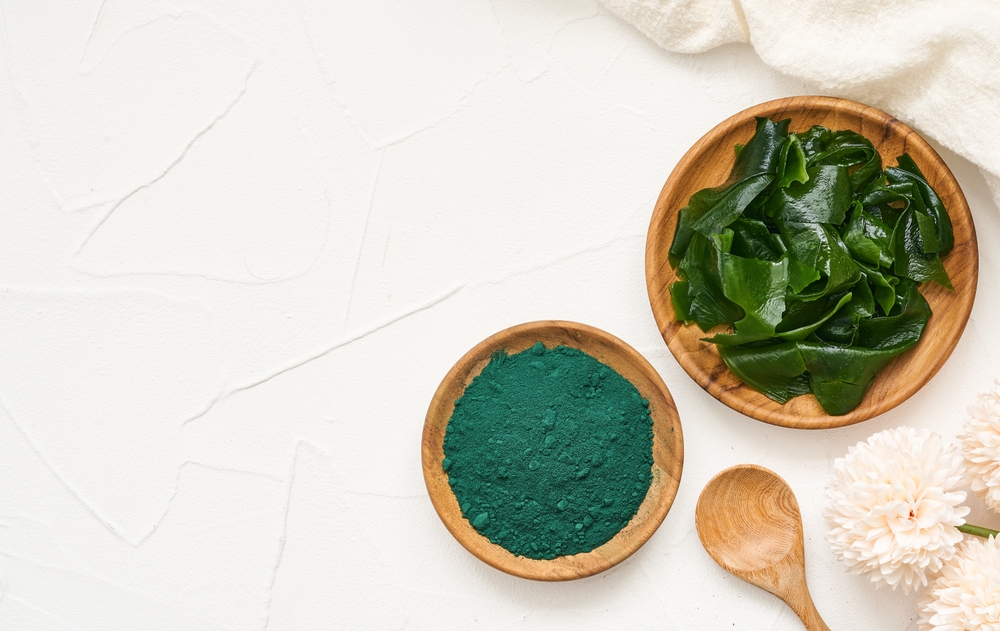Does Spirulina Increase Estrogen? A Comprehensive Guide

The relationship between spirulina and estrogen levels is unclear, with some studies suggesting spirulina may influence estrogen metabolism, while others have not found a direct link between spirulina supplementation and increased estrogen levels. [ Reference : Energybits ,ncbi.nlm.nih.gov , Askdrsmith ]
Introduction
Spirulina is a type of blue-green algae that has gained popularity in recent years for its impressive nutritional profile and potential health benefits. One area of interest is the relationship between spirulina and estrogen levels. Many people wonder, "Does spirulina increase estrogen?" In this comprehensive guide, we'll explore the role of spirulina in estrogen metabolism and its potential effects on hormonal balance.
What is Spirulina?
Spirulina is a nutrient-dense superfood that is rich in various vitamins, minerals, and antioxidants. It is a type of blue-green algae that grows naturally in warm, alkaline bodies of water. Spirulina is known for its high protein content, providing around 4 grams of protein per tablespoon. It also contains significant amounts of vitamins B1, B2, B3, and B6, as well as iron, magnesium, and calcium.
The Role of Estrogen in the Body
Estrogen is a crucial hormone for women's health, playing a vital role in regulating the menstrual cycle, maintaining bone health, and supporting cardiovascular function. It is primarily produced by the ovaries, but the adrenal glands and fat tissue also contribute to estrogen production, especially after menopause.Maintaining a healthy balance of estrogen is essential for overall well-being. Imbalances in estrogen levels can lead to a variety of symptoms, such as irregular menstrual cycles, mood swings, weight gain, and increased risk of certain health conditions.
Does Spirulina Increase Estrogen Levels?
The relationship between spirulina and estrogen levels is a topic of ongoing research and debate. Some studies have suggested that spirulina may have the potential to influence estrogen metabolism, but the evidence is not conclusive.One potential mechanism by which spirulina may affect estrogen levels is through its antioxidant and anti-inflammatory properties. Spirulina contains compounds like phycocyanin and carotenoids that have been shown to have a positive impact on liver function and estrogen detoxification. By supporting the liver's ability to metabolize and eliminate excess estrogen, spirulina may help maintain a healthy estrogen-progesterone balance.However, other studies have not found a direct link between spirulina supplementation and increased estrogen levels. The effects of spirulina on estrogen may be more complex and dependent on individual factors, such as overall hormonal status and other lifestyle and dietary factors.
Spirulina and Hormonal Imbalances
While the direct impact of spirulina on estrogen levels is not entirely clear, there is some evidence that spirulina may be beneficial for managing hormonal imbalances in women. Here are a few ways spirulina may support hormonal health:
Premenstrual Syndrome (PMS)
Several studies have suggested that spirulina supplementation may help alleviate the symptoms of PMS, such as cramps, bloating, and mood swings. The anti-inflammatory and antioxidant properties of spirulina may play a role in reducing the discomfort associated with hormonal fluctuations during the menstrual cycle.
Acne
Hormonal imbalances, particularly androgen excess, can contribute to the development of acne. Spirulina's anti-inflammatory and antimicrobial properties may help reduce acne-causing bacteria and inflammation, potentially improving skin health.
Menopausal Symptoms
Some research indicates that spirulina may help manage menopausal symptoms, such as hot flashes and mood changes. The nutrient-rich profile of spirulina may support overall hormonal balance during this transitional period.
Spirulina and Estrogen-Sensitive Conditions
Given spirulina's potential influence on estrogen metabolism, there has been some interest in its potential effects on estrogen-sensitive conditions, such as breast cancer. However, the research in this area is limited, and more studies are needed to fully understand the relationship between spirulina and estrogen-sensitive health concerns.
Recommended Spirulina Dosage for Hormonal Health
There is no universal recommended dosage for spirulina when it comes to supporting hormonal health. Typical dosages used in studies have ranged from 1 to 4.5 grams per day. It's important to consult with a healthcare professional before starting any spirulina supplementation, as individual needs and responses may vary.
Conclusion
The relationship between spirulina and estrogen levels is a complex and ongoing area of research. While some studies suggest that spirulina may have a positive impact on estrogen metabolism and hormonal balance, the evidence is not conclusive. However, spirulina's rich nutrient profile and potential anti-inflammatory and antioxidant properties may offer benefits for managing hormonal imbalances and supporting overall women's health. As with any supplement, it's essential to consult with a healthcare professional before incorporating spirulina into your routine.
